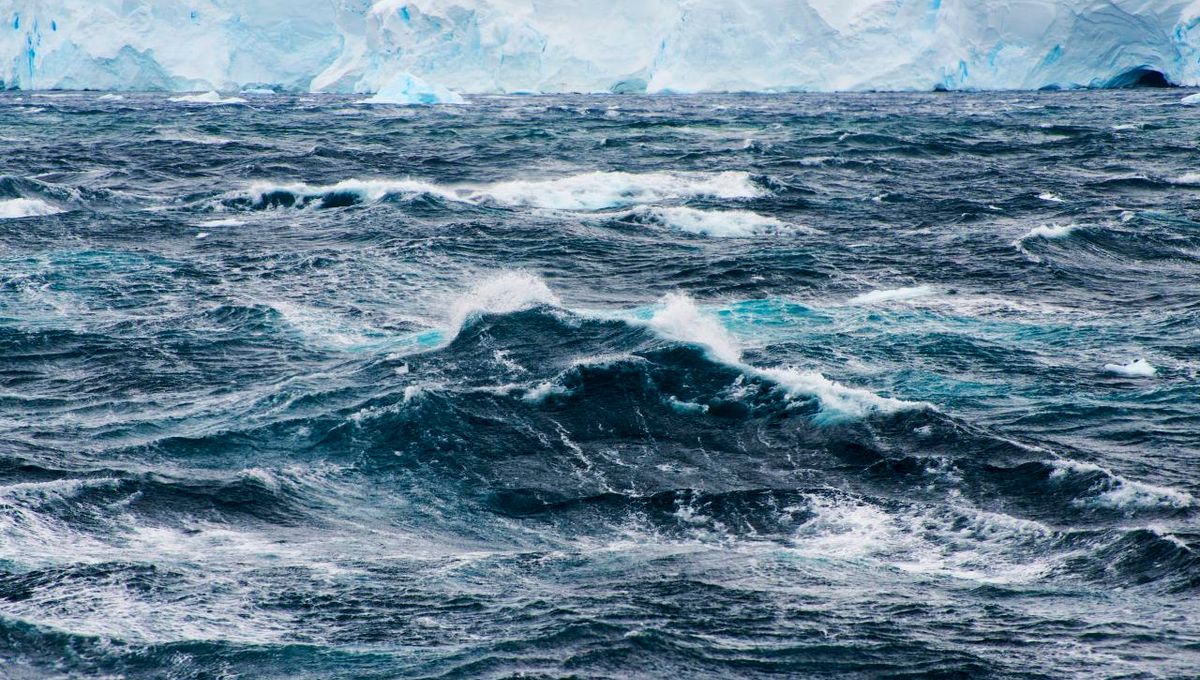
Around Antarctica, 250 trillion tons of cold water sink to the bottom of the ocean each year, but global warming is starting to affect that astonishing figure. The downward conveyor sets in train a process that affects every part of the oceans, to our immense benefit, so evidence the rate could almost halve in three decades represents a catastrophe in the making.
It will surprise no one to learn the waters around Antarctica are cold. They are also salty, and both these things make them very dense, causing them to sink. Less dense waters must rise to compensate, a process known as the Antarctic overturning. Something similar happens in the North Atlantic, and gets far more popular attention, but the vast waters of the Southern Ocean are the primary engine of the global oceans.
Global warming is disrupting the overturning. Professor Matthew England of the University of New South Wales, Dr Steve Rintoul of the Australian Antarctic Program and co-authors report in a new study that melting ice interferes with the process, since while cold, ice melt is very fresh. Other factors, such as changes to wind regimes, also contribute.
“Direct measurements confirm that warming of the deep ocean is indeed already underway,” Rintoul said in a statement. The authors predict this will accelerate drastically.
“Our modelling shows that if global carbon emissions continue at the current rate, then the Antarctic overturning will slow by more than 40 percent in the next 30 years – and on a trajectory that looks headed towards collapse,” said England.
The problem the authors identified is that as less cold water sinks, warmer waters from further north can reach the continental shelf, accelerating melting and creating a vicious circle. Existing models mostly lack the resolution to pick this up, and therefore underestimate the scale of the problem.
The dense, sinking waters are also rich in oxygen, which they carry with them, allowing life to survive at depths. “If the oceans had lungs, this would be one of them,” England said. Having reached the bottom there is nowhere lower for the dense water to go, so it spreads northwards. When these waters eventually rise, they bring nutrients with them, creating some of the most abundant spots for life on the planet.
At the surface, warmer waters move south to fill the space left unoccupied. The overturning acts as the engine for the Global Thermohaline Circulation (GTC), which powers some of the planet’s great ocean currents.
We know the GTC has faltered in the past, but not for thousands of years. However, if the Antarctic overturning slows, it will rob ocean depths around the planet of oxygen. It would also stop the upwellings in many distant locations. “This would trap nutrients in the deep ocean, reducing the nutrients available to support marine life near the ocean surface,” England said.
As the name suggests, the GTC redistributes heat around the planet, cooling warmer tropical areas and warming colder places, particularly northern Europe. The potential collapse of the system inspired the disaster movie The Day After Tomorrow. No one thinks the events portrayed in the film could remotely come true – the timescale is out by orders of magnitude – but the basic idea that there could be severe consequences from the interruption of temperature mixing is sound.
The modeling was done based on the IPCC’s “high emissions scenario”, so the one crumb of comfort is that drastic cuts to greenhouse gas production may avoid disaster.
The study is published in Nature.
Source Link: Antarctica’s Lifegiving Deep Ocean Currents Are On The Verge Of Collapse